- Home
- Dan Simmons
Hard as Nails jk-3 Page 15
Hard as Nails jk-3 Read online
Page 15
"How much would one of these set me back?" asked Kurtz. He kicked the front left tire. It hurt his foot. He'd just expended his entire cache of car-buying expertise.
"This is a PSV–L4," said Kennedy. "Top of the line. If I get you a discount, oh… one hundred and thirty-nine thousand dollars."
Kurtz nodded judiciously. "I'll think about it. I'd have to talk to the missus first."
"So you're married, Mr. Kurtz?" Kennedy was walking back toward the townhouse and Kurtz followed as far as the sidewalk.
"Not really," said Kurtz.
Kennedy blinked and folded his arms. He may look like the current James Bond, thought Kurtz, but he doesn't seem quite as fast on his intellectual feet as the superspy.
As if responding in delayed reaction, Kennedy laughed twice. He had the kind of loud, easy, unselfconscious laugh that people loved. Kurtz could have happily used a shovel on the man's head at that moment.
"So what brings you to Peg's neighborhood, Mr. Kurtz?" The security man's tone wasn't aggressive, just pleasantly curious.
"I bet you can tell me," said Kurtz. This guy drives a Porsche 911 Turbo. He's a member of that club that Tom Wolfe called "Masters of the Universe."
Kennedy nodded, thought a minute, and said, "You still think like a private investigator. You've been working through some things about the shooting and wonder if there's a clue in Peg's house."
Kurtz widened his eyes slightly as if in awe of Kennedy's ratiocination.
"But you weren't thinking about breaking in, were you, Mr. Kurtz?" Kennedy's white smile took the edge off the question. It was a smile, Kurtz thought, that could honestly be called "infectious." Kurtz hated things that infected other things.
Kurtz smiled back, with no fear of his chagrined smirk being thought of as infectious. "Naw. I had enough prison time in Attica. I was just in the neighborhood and was… as you say… thinking about the shooting."
I always used to stand outside victims' homes and try to pick up on psychic vibes when I was a licensed P.I., thought Kurtz but didn't articulate this coda. It might be gilding the lily a bit, even for someone as self-satisfiedly obtuse as Brian Kennedy.
"Want to come in?" said Kennedy, tossing a ring of keys in the air. "I was just picking up some insurance stuff and legal papers that the hospital wanted. I don't think Peg would have minded if you just step in a minute while I'm here."
Kurtz picked up on the past-tense in that last sentence. Had O'Toole died? The last he'd heard, she was on life support.
"Sure," he said and followed Kennedy into the building.
CHAPTER TWENTY-TWO
"So what did O'Toole's apartment look like?" said Arlene when Kurtz was back in the office later that waning Saturday afternoon. "Any clues lying around?"
"Just clues to her personality," said Kurtz.
"Such as?" said Arlene. She flicked ashes into her ashtray.
Kurtz walked to the window. It had grown colder and darker and begun to rain again. Even though it was an hour from official sunset, the streetlights had come on along Chippewa and the headlights and taillights of passing cars reflected on the wet asphalt.
"Such as the place was neat and clean and tilled with art," said Kurtz. "Not a lot of original art—she couldn't have afforded that on her probation officer salary—but tasteful stuff, and more small original oil paintings and sculptures than most people would collect. And books. Lots of books. Mostly paperbacks but all of them looked like they'd been read, not just leather-bound crap to look good on the shelves, but real books. Fiction, nonfiction, classics."
"No real clues then," said Arlene.
Kurtz shook his head, turned back to the room, and sipped some Starbucks coffee he'd picked up. He'd brought a cup for Arlene, and she was drinking hers between puffs on her Marlboro. "She had a laptop on her desk," said Kurtz. "And two low filing cabinets. But obviously I couldn't look through them with Kennedy there."
"Weird that he let you come in with him," said Arlene. "He must be the most guileless security expert in the world…"
"Or too crafty for his own good," said Kurtz. "He made tea for us."
"How nicely domestic," said Arlene. "Made himself right at home in Ms. O'Toole's townhouse, huh?"
Kurtz shrugged. "He told me that he'd been staying there with her when he was in Buffalo every few weeks. I saw some of his suits and blazers in a closet."
"He let you wander into her bedroom?"
"He was grabbing some stuff," said Kurtz. "I just stood in the doorway."
"Fiancés," said Arlene, using the tone that other people did when they said "Kids.Whaddyagonnado?" She nodded toward her computer screen where the names of WeddingBells-dot-com clients were stacked like cordwood.
"The question remains, why'd he invite me up?" said Kurtz, turning back to watch the traffic move through the cold October rain. "He asked me what I was doing there, but then he gave the answer—as if he didn't really want to press me on it. Why would he do that? Why wasn't he pissed—or at least suspicious—when he found me hanging around outside O'Toole's townhouse?"
"Good question," said Arlene.
He turned away from the window. "Do you know any Yemeni?"
Arlene stared at him. "Do you mean any Yemeni people?"
"No, I mean the language," said Kurtz.
Arlene smiled and stubbed out her cigarette. "I think Arabic is the language spoken in Yemen. Some of them speak Farsi, I think, but Arabic is the dominant language."
Kurtz rubbed his aching head. "Yeah. All right. Do you speak any Arabic that a Yemeni would understand?"
"Al-Ghasla," said Arlene. "Thowb Al-Zfag, Al-Subhia."
"You made that up," said Kurtz.
Arlene shook her head. "Three kinds of wedding dresses—the dress of the eve of the wedding, Al-Ghasla, the bridal gown, Thwob-Al-Zfag, and the gown of the day following the wedding, Al-Subhia. I just helped a client from Utica order all three from a Yemeni dressmaker in Manhattan."
"Well, I guess that'll do," said Kurtz. "I'll bring little Aysha here on Monday night and you two can discuss wedding dresses. She doesn't know she's a widow even before she's married."
Arlene stared at him until he explained about Baby Doc's phone call.
"That's really sad," said Arlene, lighting another Marlboro. "Do you really think that she can tell you anything about what Yasein Goba was doing? She's been in Canada."
Kurtz shrugged. "Maybe we won't even be able to understand each other, but if I don't meet her up in Niagara Falls tomorrow night, no one else is going to. Baby Doc's people have washed their hands of her. She's just going to get picked up by the cops sooner or later and shipped back to Yemen by the INS."
"So you pick her up tomorrow night and try to talk to her," said Arlene. "And can't. What then? Sign language?"
"Any ideas?"
"Yes," said Arlene. "I know some people through my church who take part in a sort of underground railroad helping illegal immigrants get into the States."
"Goba's already had that part arranged," said Kurtz.
Arlene shook her head. "No, I mean I'll get in touch with the guy who helps the immigrants—Nicky—at church tomorrow, he'll call one of the Yemeni people they use to translate, and they can help us talk to the girl."
"All right," said Kurtz. "Get your friend's translator here early Monday morning."
"Can't it wait until later?" asked Arlene. "This woman—Aysha? — can sleep at my place Sunday and we can meet with the translator on Monday."
"Monday's Halloween," said Kurtz, as if that explained anything.
"So?"
He considered telling her about Toma Gonzaga's promise to murder him at midnight on Halloween if he hadn't solved the don's junkie-killer problem. He considered it for about five microseconds. "I have things to do on Halloween," he said.
"All right, early Monday morning," said Arlene. She came over to the window and joined him in looking out at the rain. It was getting dark in earnest now. "Some people just don't get a break, d
o they, Joe?"
"What do you mean?"
"I mean this Aysha will wake up tomorrow morning thinking she'll be meeting her fiancé in a new country that night, that she'll be a wife and maybe a U.S. citizen, and that everything is working out for her. Instead, she'll hear that her fiancé is dead and that she's a stranger in a strange land."
"Yeah, well…" said Kurtz.
"Are you going to tell her that you killed him? Goba?"
Kurtz looked at his secretary. Her eyes were dry—she wasn't going soppy on him—but her gaze was focused on something far away.
"I don't know," Kurtz said irritably. "What the hell's wrong with you?"
"Just that life sucks sometimes," said Arlene. "I'm going home." She stubbed out her cigarette, turned off her computer, tugged her purse out of a drawer, pulled on her coat, and left the office.
Kurtz sat by the window a few minutes, watching the gray twilight and rain and almost wishing that he smoked. During his years in Attica, his non-habit had served him well—the cigarettes he was allowed all went toward barter and bribes. But on days like this, he wondered if smoking would soothe his nerves—or lessen his headache.
His cell phone rang.
"Kurtz? Where are you? What happened to our meeting?"
It was Angelina Farino Ferrara.
"I'm still traveling," said Kurtz.
"You lying sack of shit," said the don's daughter. "You're in your office, looking out the window."
Kurtz looked across Chippewa. There was the ubiquitous black Lincoln Town Car, parked on the other side of the wet street. Kurtz hadn't seen it arrive and park.
"I'm coming up," said Angelina. "I know you have a lock on that outside door, so don't keep me waiting. Buzz me in."
"Come up alone," said Kurtz. He looked at the video monitor next to Arlene's desk. He had no illusions about the lock down there holding out her bodyguards if they really wanted to come up with her. There was a small window in the computer-server room at the back that opened to a seven-foot drop to a lower rooftop, then a ladder back there to not one but two alleys. Kurtz never wanted to be anywhere with just one way out.
"I'll be alone," said Angelina and broke the connection.
Kurt watched the woman cross Chippewa toward him in the rain.
CHAPTER TWENTY-THREE
The Dodger was frustrated by his morning's failure to take care of the teacher out in Orchard Park, so he was pleased in the early afternoon when a wireless PDA/cell phone connection to the Boss gave him a new and more interesting task.
He knew the target from earlier briefings. In one sense, it didn't make any difference to the Dodger who the targets were or why they had become his targets—they were all means to the ends of the Resurrection to him. But in another sense, it made everything more interesting when the targets were more difficult. And this one should be more difficult.
He knew the address. It was raining off and on when he drove the extermination van out to the Marina Towers address near the Harbor marina. There was a large public parking lot near the high rise and, as the Boss had promised, a new Mazda sedan was parked there, keys in the tailpipe. A bug van wasn't the best vehicle in which to tail someone.
The Dodger settled in the front seat of the Mazda, tuned some jazz on the radio, and watched the front of Marina Tower through small binoculars. He'd been well briefed on the current struggle over the heroin trade in Buffalo and knew that this apartment building was the headquarters for the Farino daughter; she owned the top two floors and kept the penthouse as her personal address while accountants and others worked and sometimes lived on the floor below. Her personal vehicles were kept in the basement garage and that could only be accessed by internal elevators, locked staircases, or through the underground ramp closed by a steel-mesh gate controlled by the residents' magnetic-strip cards.
The Dodger waited. The cold drizzle fell harder, which was good; passersby in the parking lot or on the nearby Marina Park Road couldn't see him through the rain-mottled windshield. The Dodger turned off the radio to conserve the Mazda's battery and he waited.
Around four P.M., the garage mesh door went up and a black Lincoln slowly emerged. The Dodger watched as the Lincoln came around to the semicircular entrance drive of Marina Towers. The Lincoln's driver got out and walked around the car and a second bodyguard stood watching the street as Angelina Farino Ferrara came out the front door, said something to the liveried doorman, and walked over to the Lincoln.
She didn't get in. She spoke briefly to the two men and then began jogging along the pedestrian path that led out along the shore where Lake Erie narrowed into the Niagara River. The Lincoln pulled around the entrance drive and followed slowly, heading north. The Dodger turned on his wipers and followed several hundred meters behind.
He knew from his briefings that the Farino woman liked to jog early in the morning and again in the afternoon, although usually later than this. Maybe it was the coming storm or increasing drizzle that had brought her out early.
The Dodger also recognized the two men in the Lincoln. The driver was Corso "the Hammer" Figini, serious muscle the female don had brought in from New Jersey the previous spring. The thinner, infinitely more handsome and Waspy-looking man riding shotgun today was Colin Sheffield, a well-dressed, thirties-something London criminal who'd specialized in high-class extortion, drug deals and security. Sheffield had worked for the second-most-powerful mob boss in England until the day he'd gotten a little too ambitious for his own good—not trying to whack his employer, the story went, just trying to corner some of the action for himself—and ended up leaving the country a few hours ahead of the hit team his own boss had sent.
The Dodger's earlier briefing hadn't included how the Farino woman had ended up hiring Colin Sheffield, but that wasn't all that important.
The Lincoln was moving slowly, essentially keeping pace with the Farino woman's jogging, and the Dodger had to pass it or look suspicious. Drivers were turning on their headlights now, and the view to the west and north was all dark gray clouds coming in with the October twilight. The Dodger didn't turn his head as he passed the Lincoln and the running woman.
He made a large loop, and returned to the parking lot where he'd started, parking next to the exterminator's van. He didn't think that a mob guy's daughter was very smart keeping to a routine like that, and running along the river path every morning and evening. There were several places along the path where the bodyguards couldn't see her if they stayed in their car—which they did—and the Dodger thought the jogging would be a good time and place to take her out.
The briefing had said that Farino ran for forty-five minutes in her river path circuit, and sure enough, she and the Lincoln were back in front of Marina Towers forty-six minutes after they'd left The Dodger watched through his small binoculars as she spoke to Sheffield and Figini, leaning against the car and lifting her legs as she cooled down, and then went in the front door. The Lincoln idled at the curb. Figini, the driver, was reading a racing form.
Fifteen minutes later, she came out and got in the back seat and the Lincoln pulled away.
It was dark enough and raining hard enough now that the Dodger didn't worry about being spotted as he followed the big, black car over to Elmwood and then north to Chippewa Street. He'd be just another pair of headlights to them in Saturday traffic headed for the one lively spot in Buffalo.
The Lincoln parked on Chippewa and the Dodger paused in a loading zone until he saw the Farino woman cross the street and go in a door. It wasn't a club or a restaurant, so he took note of the address on the PDA, uplinked it through his cell phone, and waited. When a police car trolled by and paused near the loading zone, the Dodger drove around the block, returned, and found a space only three cars behind the idling Lincoln. The patrol car had gone.
He was lucky. In another hour, there wouldn't be public parking within five blocks.
The two bodyguards were watching a lighted third-story window. Sure that he was still unnoticed by
the bodyguards in the dark and rain behind them, the Dodger used his binoculars to watch the same window for a second. Angelina Farino Ferrara stepped in front of the window for a second, looking down toward her bodyguards. Then she turned and spoke to someone in the room. The Dodger had learned how to read lips when he was away, but the woman's head was turned just enough that he couldn't make out what she was saying. Then she stepped away, out of sight, and the lights went out in the office up there.
His cell phone chimed softly and the Dodger put away the binoculars. The two men in the Lincoln Town car were just silhouettes now, the big driver reading and the other staring straight ahead, and the Dodger guessed that the woman's coming to the window was a prearranged sign telling Figini and Sheffield to relax.
Text appeared on the PDA screen—address confirmed, execute.
The Dodger wiped the message, removed his 9mm Beretta, and carefully attached the thin suppressor. Then, after pulling on a cheap raincoat that was two sizes too large for him, he switched off the Mazda sedan's overhead light, scooted past the shifter to the passenger side, and stepped out into the rain.
CHAPTER TWENTY-FOUR
"What do you want?" said Kurtz. "Your money?"
"That will do for a start," said Angelina. She moved into the office and watched as Kurtz locked the door behind her. Then she dropped her cashmere coat onto the old leather couch. She was wearing a tight, black dress cut low on top and high on the thighs, expensive leather boots, a single gold necklace, and some subtle gold bracelets. He'd never seen Angelina Farino Ferrara in clothes like that. Come to think of it, thought Kurtz, most of the time he'd seen her, she'd been in gym togs or jogging attire. Her dark hair was swept up and back on the sides, but secured so that it still hung free in back. It looked wet, but he couldn't tell if that was from walking through the rain or some mousse thing.
Kurtz picked an envelope off his desk and handed it to her. The entire five thousand dollars advance was in it. He'd use other money to manage his getaway on Tuesday if he had to run for it. He dropped into his swivel chair and looked up at her. The.38 was in its holster taped to the underside of his desk drawer, inches from his hand.

 The Terror
The Terror Endymion
Endymion Hyperion
Hyperion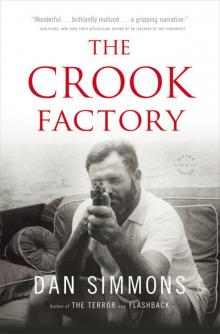 The Crook Factory
The Crook Factory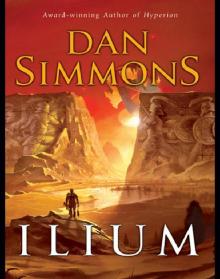 Ilium
Ilium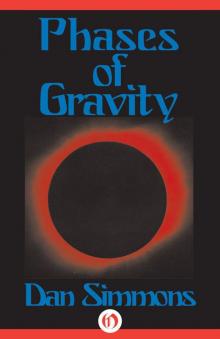 Phases of Gravity
Phases of Gravity Hardcase
Hardcase Fires of Eden
Fires of Eden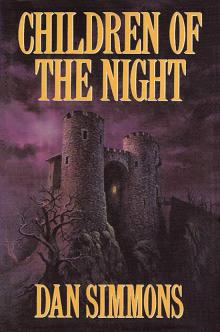 Children of the Night
Children of the Night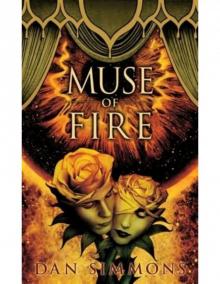 Muse of Fire
Muse of Fire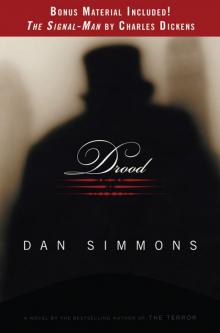 Drood
Drood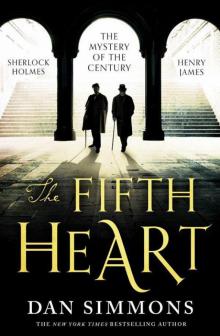 The Fifth Heart
The Fifth Heart Carrion Comfort
Carrion Comfort The Hollow Man
The Hollow Man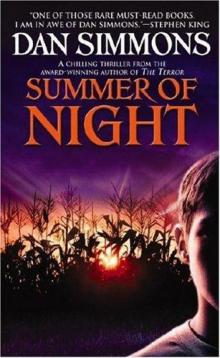 Summer of Night
Summer of Night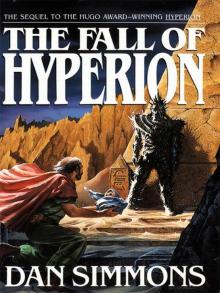 The Fall of Hyperion
The Fall of Hyperion Black Hills
Black Hills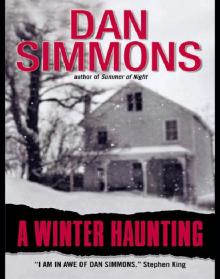 A Winter Haunting
A Winter Haunting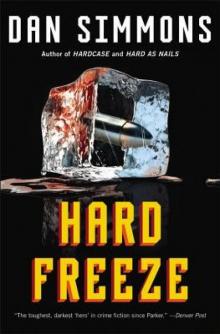 Hard Freeze
Hard Freeze Prayers to Broken Stones
Prayers to Broken Stones Hard as Nails
Hard as Nails The Guiding Nose of Ulfant Banderoz
The Guiding Nose of Ulfant Banderoz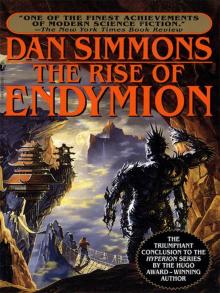 The Rise of Endymion
The Rise of Endymion Orphans of the Helix
Orphans of the Helix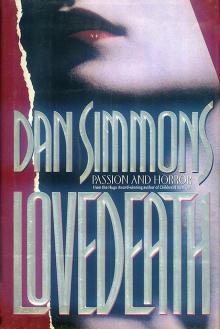 Lovedeath
Lovedeath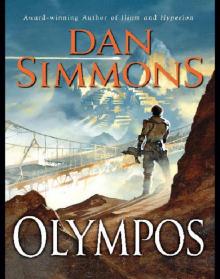 Olympos
Olympos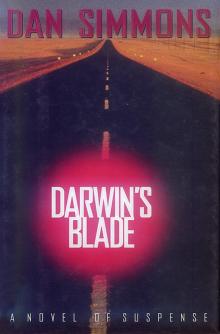 Darwin's Blade
Darwin's Blade Song of Kali
Song of Kali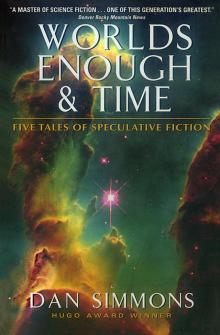 Worlds Enough & Time: Five Tales of Speculative Fiction
Worlds Enough & Time: Five Tales of Speculative Fiction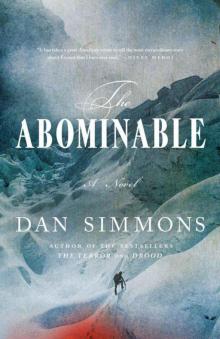 The Abominable
The Abominable The Death of the Centaur
The Death of the Centaur Hard as Nails jk-3
Hard as Nails jk-3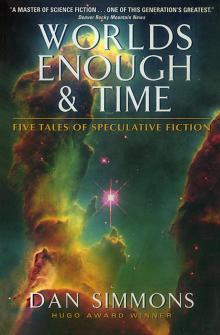 Worlds Enough & Time
Worlds Enough & Time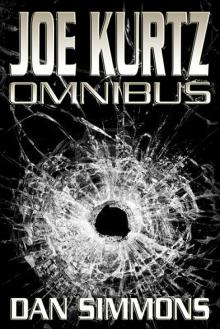 Joe Kurtz Omnibus
Joe Kurtz Omnibus The Hyperion Cantos 4-Book Bundle
The Hyperion Cantos 4-Book Bundle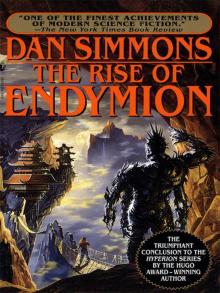 Rise of Endymion
Rise of Endymion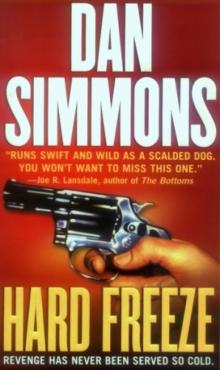 Hard Freeze jk-2
Hard Freeze jk-2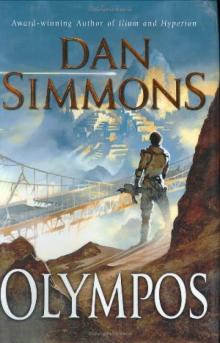 Olympos t-2
Olympos t-2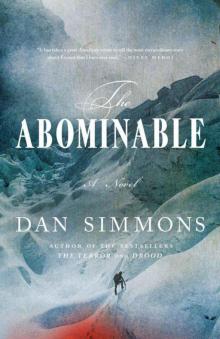 The Abominable: A Novel
The Abominable: A Novel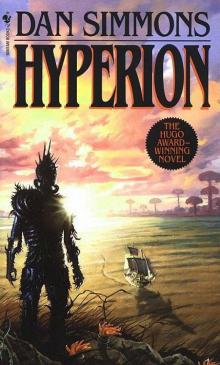 Hyperion h-1
Hyperion h-1 Remembering Siri
Remembering Siri Black Hills: A Novel
Black Hills: A Novel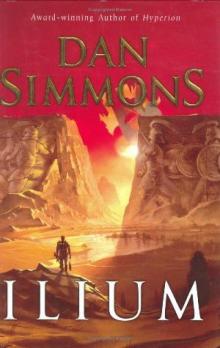 Ilium t-1
Ilium t-1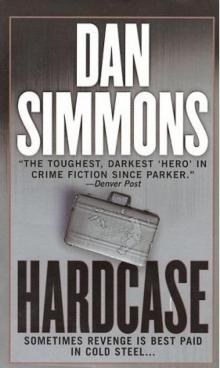 Hardcase jk-1
Hardcase jk-1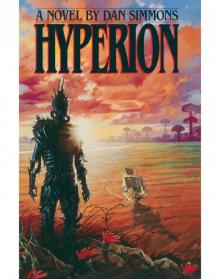 Hyperion 01 - Hyperion
Hyperion 01 - Hyperion